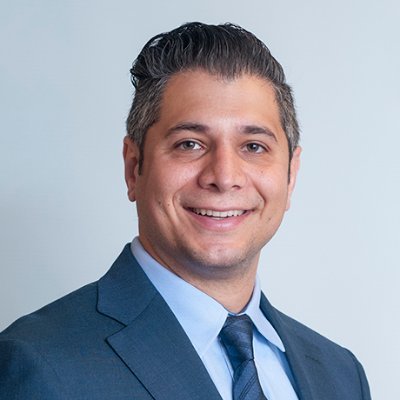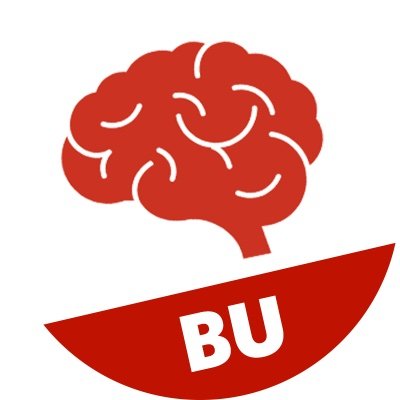
Dan Daneshvar, MD, PhD
@DanDaneshvar
Followers
365
Following
85
Media
10
Statuses
89
Faculty @HarvardMed, Chief of Brain Injury Rehabilitation @SpauldingRehab, Neuroscientist @BU #CTE Center
Boston, MA
Joined July 2012
Many hits that don't cause concussions are harder than the hits that do We should be calling these hits "nonconcussive" "Subconcussive" makes them sound smaller. They're not
⚠️ ‘Subconcussive’ is a dangerous misnomer 🧠 NEW #Editorial looks into how hits of greater magnitude than concussive impacts may not cause symptoms and how clinical terms may need updating 🤔 #OpenAccess ➡️ https://t.co/XCUSZiPtkN
2
4
17
Really cool new study suggests that there's potential utility to the diagnosis of TES in life (the clinical syndrome of CTE) https://t.co/fnoqmmBSKB
pubmed.ncbi.nlm.nih.gov
The 2021 TES criteria clearly distinguishes group differences in the longitudinal presentation of volumetric loss in select brain regions and cognitive decline among professional fighters 35 years...
0
2
12
Join us Thursday on Zoom for a research roundup and a breakdown of our new CTE Prevention Protocol! Dr. @DanDaneshvar will sum up the largest CTE study to date. Dr. Samantha Bureau follows with how this research informs CTE prevention. Register here! ⤵️ https://t.co/POBK2AgLit
1
7
15
NEW TODAY: Our new study, in collaboration with researchers at @harvardmed, was published in @NatureComms. Read the paper here: https://t.co/fxsQ3ASbK4 (1/2)
2
13
21
And here's a great graphic showing how the odds of CTE change with increased force to the brain
0
0
7
@nytimes did a great job with graphics related to the article https://t.co/Qsk1dluBq6 This describes our sample, and shows the strong relationship between total lifetime force and CTE pathology
1
0
9
In the largest study of CTE to date: concussion does not cause CTE The predicted total force to the head that athletes experienced over their lifetime was the best predictor of who had CTE, and how severe it was
9
27
105
I think I look pretty good for having died in 2016... Just don't let ChatGPT tell my wife (married 2016) or kids (born 2020 and 2022)
1
0
6
.@DanDaneshvar, MD, brain injury physician at Mass General Brigham, offers reasons why a quick return to school might be helpful after a child head injury, including an increase in brain blood flow & social and emotional benefits. Learn more with @usnews. https://t.co/xNII0YKbzQ
2
3
6
If the odds of winning powerball are approx 1 in 300M, tix are $2, and the jackpot is over 1.5B, isn't the expected value around 2.5x? If you lose half to lump sum and pay half in taxes, you're still around even (including smaller prizes) So buying lottery tickets is smrt?
2
0
1
For a more thorough analysis of what we know about CTE risk, please see this publication from my colleagues: Prof @Adamfinkel0 and Dr. Kevin Bieniek Note: Despite the warning, the link directs to a free pdf hosting site where Finkel uploaded his own paper https://t.co/dGGF2wC8eb
0
0
1
Either the symptoms of CTE are so severe that studies are capturing every case of CTE, or the prevalence of CTE in affected groups is as high as in the studies because symptoms of CTE are nonspecific But brain donor samples can't be incredibly biased by symptoms that don't exist
2
2
5
The problem is when the same person brings up both arguments to disqualify the entire body of CTE science Because, if CTE pathology is not associated with symptoms, why would people with CTE donate more frequently? This is the #CTESkepticsParadox
#MedTwitter #neurotwitter
2
2
5
Argument 2 is most commonly used to say that symptoms are common (e.g., many without CTE forget where they put their keys sometimes), so you can't say changes are due to pathology Besides diminishing the severity of symptoms experienced by those with CTE, this criticism is valid
1
1
3
Argument 2: Because CTE can only be diagnosed postmortem, the pathology of CTE may not actually be associated with clinical symptoms What does pathology matter if it can't be definitively linked to changes in cognition, behavior, or mood?
1
1
3
Argument 1 is most commonly used to point out (accurately) that the high prevalence of CTE in brain donation studies (e.g., over 90% of #NFL players studied have had CTE) cannot be extrapolated to the rest of the population
1
1
4
Argument 1: Because CTE can only be diagnosed postmortem, the bulk of CTE research comes from brain donation studies. There is significant sample bias because those who donate their brains are more likely to exhibit dysfunction Symptomatic people are more likely to donate
1
1
3
In light of the announcement this week that #NIH #NINDS agrees #CTE is caused by repeated hits, and in honor of the #CISG meeting, I'd like to present the #CTESkepticsParadox AKA: how two completely valid, but opposing, views are somehow simultaneously used to cast doubt on CTE
3
8
30





